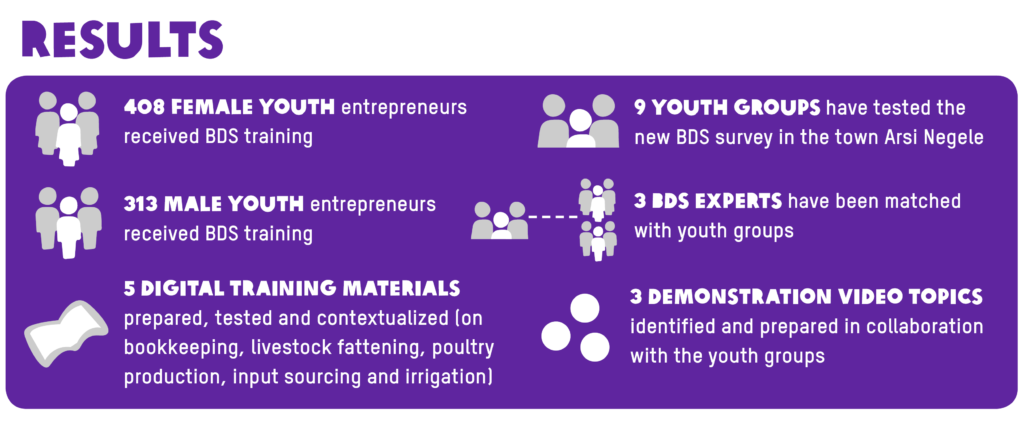Mobile BDS: A pilot from Ethiopia
This pilot aims to provide need-based business development services (BDS) and trainings to youth-led small and medium enterprises (SMEs) in the semi-urban and rural areas of Ethiopia. Its mobile delivery is an innovative way of reaching young entrepreneurs in remote areas that would otherwise not have access to such services. Their businesses benefit from services related to market research, branding, market access, innovative solutions for technical challenges, linkage to suppliers and basic management and leadership skills.
How it works
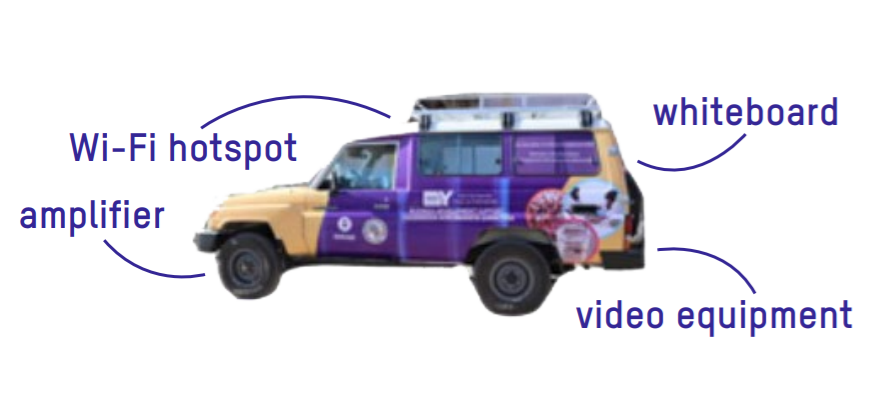
The pilot is delivered through a mobile BDS match-making service. Specialized vehicles bring BDS and training support directly to youth-owned businesses. They are equipped with an amplifier, a whiteboard, video equipment and mobile Wi-Fi hotspots. To ensure that young people get the right support, local volunteers are trained to conduct needs assessments in their villages. The data is uploaded onto tablets using the vehicles’ Wi-Fi hotspots and sent to the EYW team. A suitable expert is then chosen who will travel to the villages and train the youth. The training, facilitated by the Enterprise Development Centre (EDC), also covers vital messages on social change, gender and health.
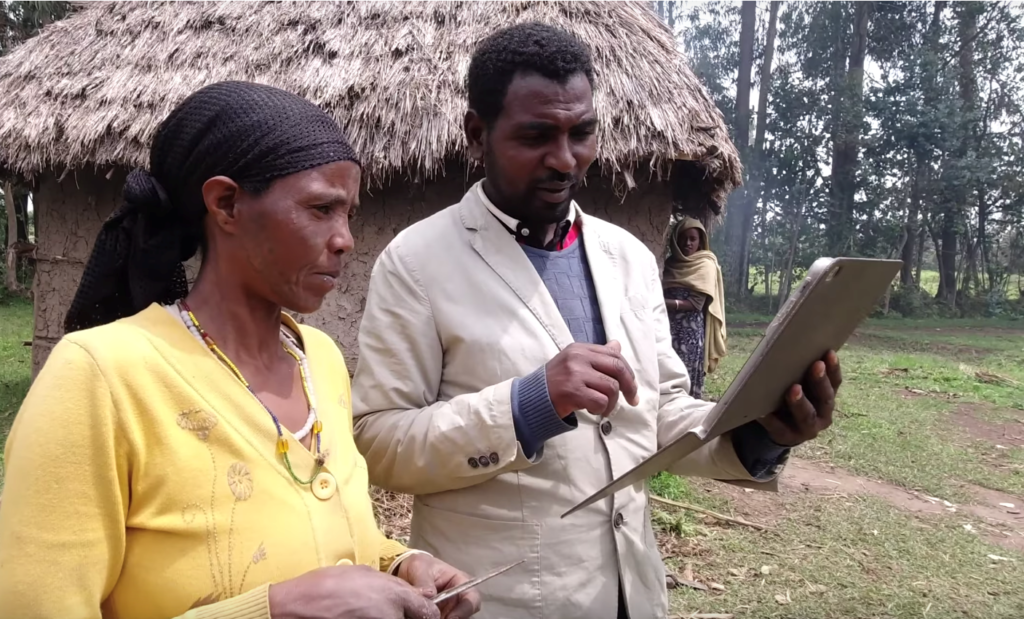
What makes this pilot innovative?
- Targeting young women: Bringing experts to the beneficiaries ensures a 70% female participation in the project. In conservative communities, girls are not allowed to travel far for education or training due to stigmatization and safety concerns.
- Remote youth groups: Experts travelling in the field are equipped with video-based training modules that show how things are done in practice. The trained BDS volunteers are thus able to sync these videos (in local language) onto their tablets, which are then shown to the most remote youth groups that could not been reached for logistical reasons.
- Climate-friendly: Businesses can benefit from locally available resources and knowledge, while also becoming aware of climate-friendly ways of running a business and the impact of climate change on their efficiency.
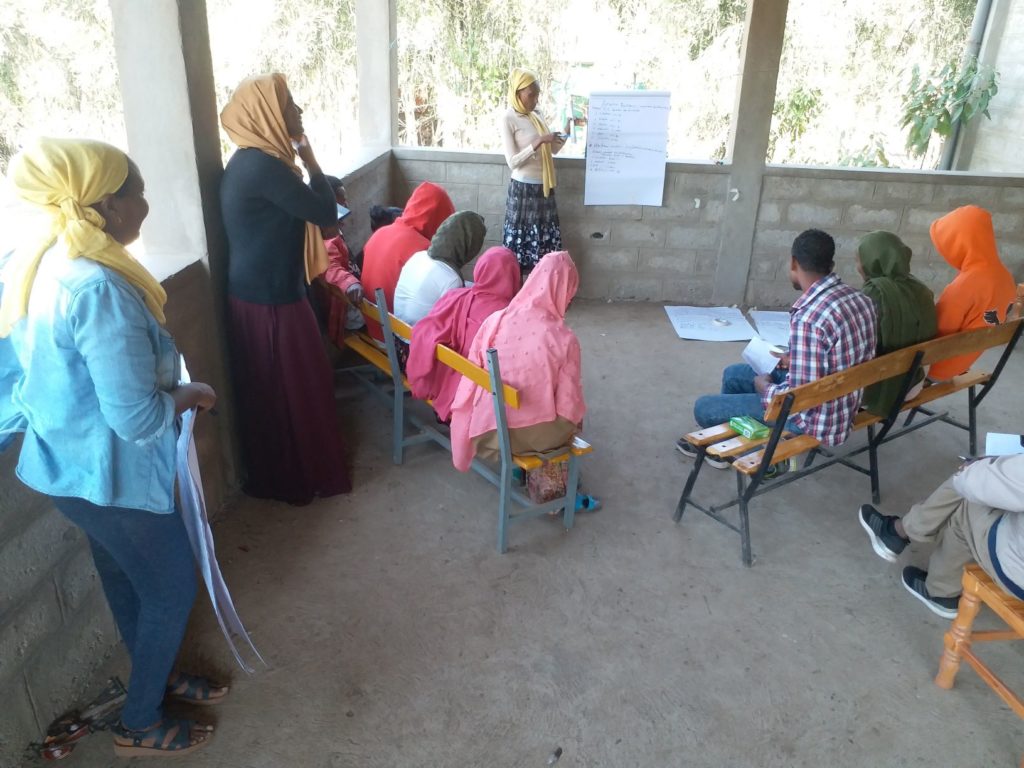
Why this pilot?
Many young people in Ethiopia are motivated to start their own businesses, especially in the profitable sector of agriculture. This is not an easy task, as they have very little business knowledge and are often unable to access micro-credit, training and BDS. Youth living in the rural areas face even greater challenges, being far away from training centers and colleges that provide such support. They lack market access to products and services, leadership skills and technical support. Existing services are not well-coordinated or linked to youth groups, and it is usually costly to bring BDS or technical experts to rural areas.
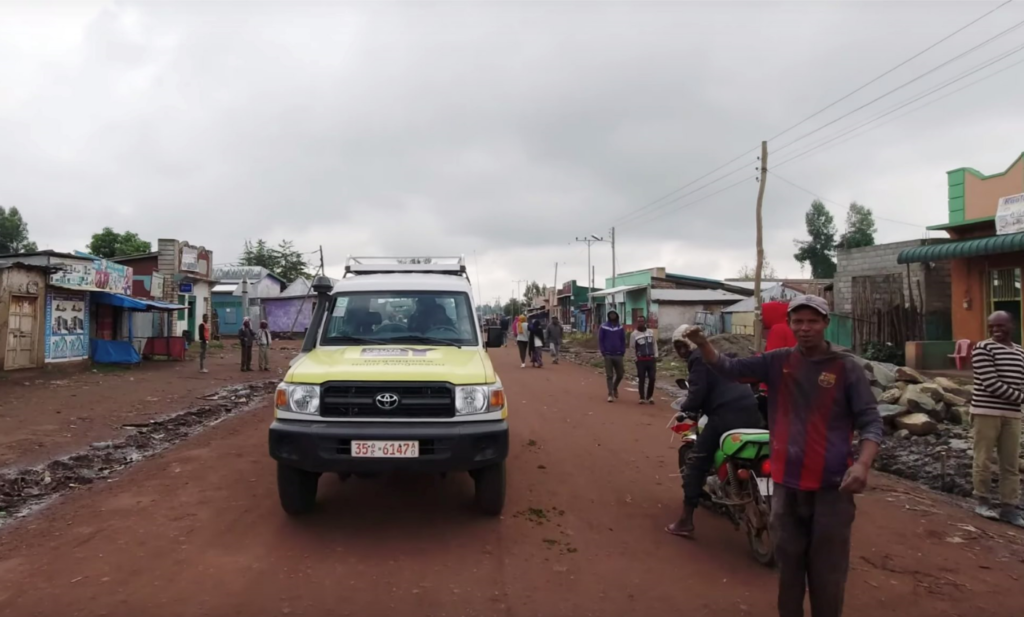
Methodology
The pilot is implemented as of April 2017 in collaboration with Rift Valley Children and Women Development Organization (RCWDO), Horn of Africa Voluntary Youth Committee (HAVOYOCO) and the EDC. Facilitated by ProPortion, the pilot was developing using the Human-Centered Design (HCD) methodology to gain a deep understanding of the problems and behavior of people in order to create innovative ideas.

- Inception:The project idea was introduced.
- Hearing: Research was done to identify the needs and challenges faced by targeted youth, SMEs and start-ups in Oromia and Somali regions. Assessments and discussions were held with experts and organizations and a partner was selected.
- Creation: A ‘design sprint’ was held in which the problem was explored from different angles, an idea was chosen and the prototype was tested in the field, and feedback was gathered from the target audience.
- Delivery: The final product became a mobile BDS matchmaking service and a Q&A video platform. After delivery, it was continuously improved from user feedback.
- Scale-up: The BDS needs survey was translated into local languages, demonstration videos were prepared and tested, and a learning trip was held between the Oromia and Somali regions to scale up the original pilot to the latter. Successful entrepreneurs and other local volunteers are also being trained to become BDS advisors and deliver the service directly to local youth.
Lessons learned
- Demonstration videos proved to be practical and well-received by youth, whereas the Q&A video platform was costly, time-consuming and not answering the questions of youngsters. Only the former were continued.
- Regular support and follow-up during the training and the business engagement periods were implemented to tackle low commitment levels from youth participants and stakeholders.
- Two youth groups participated in some BDS training sessions, which turned out to be very fruitful as they were able to learn from each other.
- An E-motive learning exchange to Tanzania revealed that beyond BDS, youth needed tailored coaching, technical expertise and mentoring from field trainers. They could also benefit from peer-to-peer learning between youngsters and experts. Likewise, having a business mindset to fill a gap in the market is important for young people to become successful.
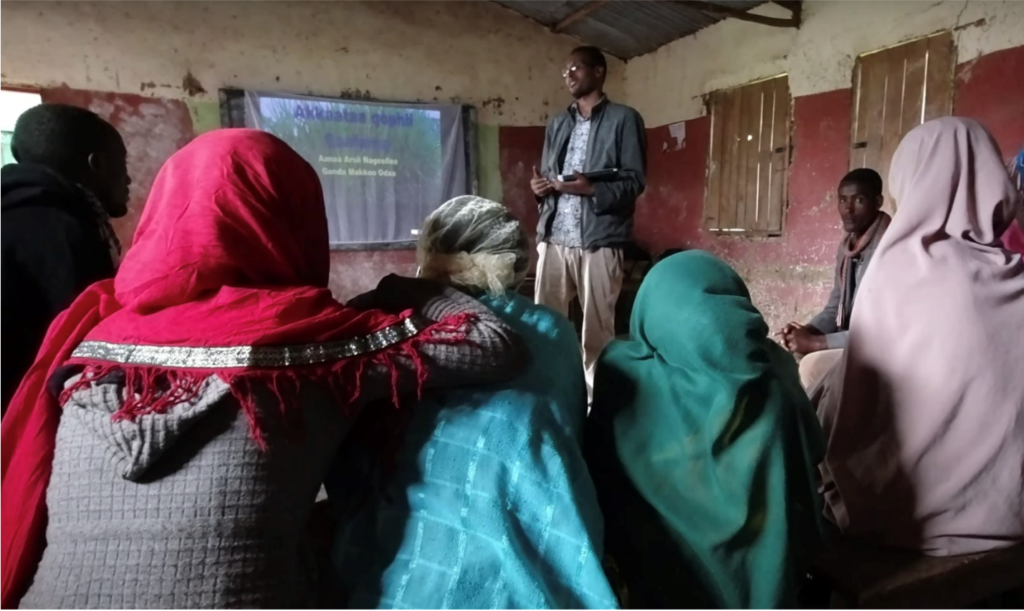
Sustainability and scaling
Overall, the different stakeholders involved gave positive feedback on the final mobile BDS match-making service and want to adopt the model. An important factor for the pilot becoming sustainable is the involvement of responsible grassroots-level stakeholders (e.g. the government, job-creation companies) from the beginning, as well as trying to make the service more demand- and needs-based.
Beneficiaries also reported being satisfied with the services, and other youth group members have asked to be included in the pilot. The next step is to include other young people who have their own businesses, initiatives and funds from government. The pilot is planned to be scaled up to the Somali region, and all the tools (questionnaires, videos) will be translated into local language.
To learn more bout the entrepreneurship training of the EYW project Click Here

